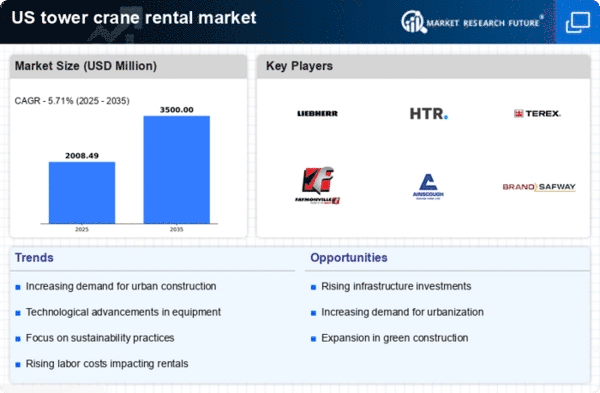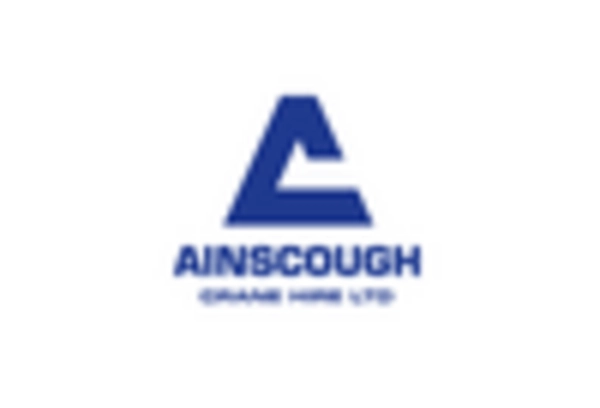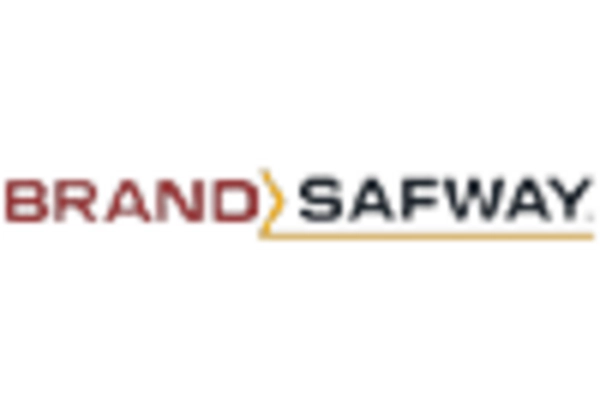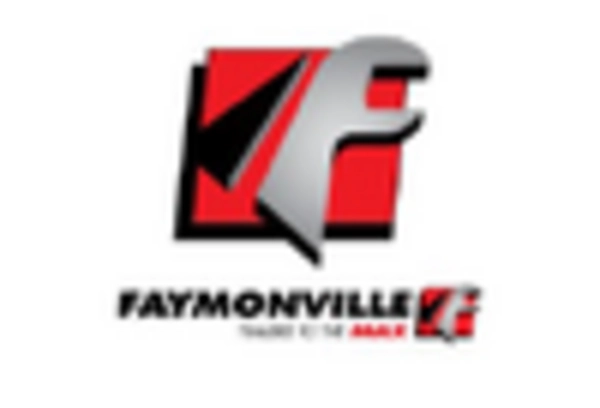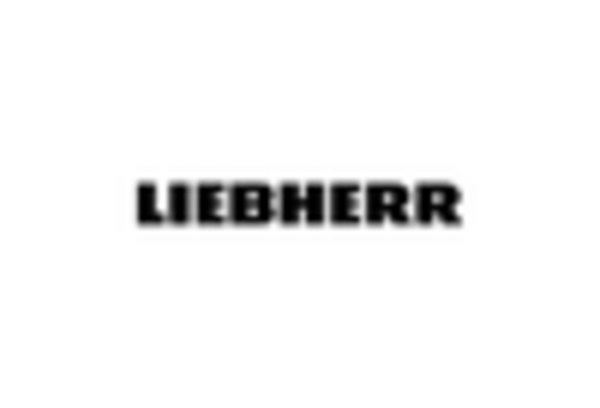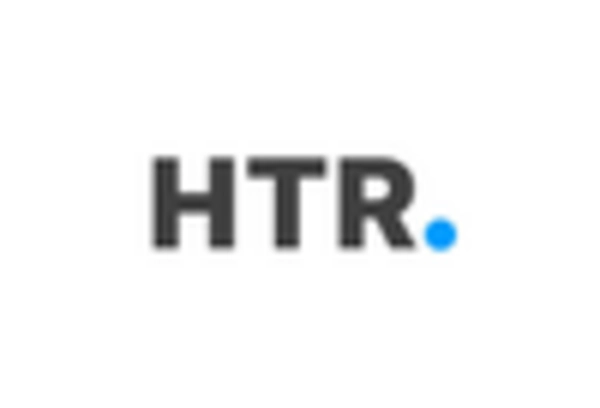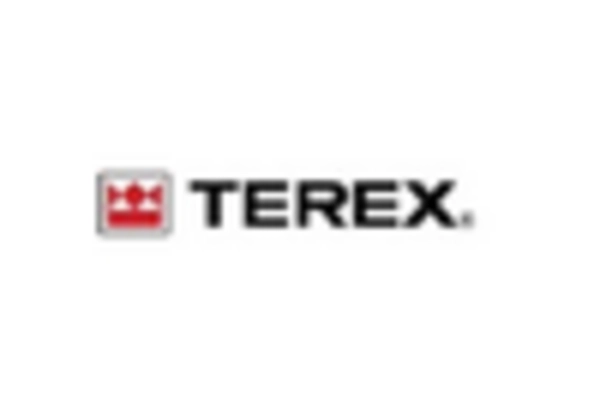Technological Integration
the integration of advanced technologies into the tower crane-rental market is reshaping construction operations. Innovations such as telematics, automation, and remote monitoring systems are becoming increasingly prevalent, enhancing the efficiency and safety of crane operations. For instance, the implementation of telematics allows for real-time tracking of equipment performance, which can lead to improved maintenance schedules and reduced downtime. As construction companies in the US adopt these technologies, the demand for technologically equipped tower cranes is likely to increase. This trend not only improves operational efficiency but also aligns with the industry's push towards sustainability and reduced environmental impact. The tower crane-rental market stands to benefit from this technological evolution, as companies seek to leverage these advancements to gain a competitive edge.
Shift Towards Rental Models
the tower crane-rental market is influenced by the growing preference for rental models over ownership among construction companies. This shift is primarily driven by the need to reduce capital expenditures and maintenance costs associated with owning heavy machinery. By opting for rentals, companies can allocate resources more efficiently and adapt to fluctuating project demands. In 2025, it is estimated that around 60% of construction firms in the US will prefer renting equipment, including tower cranes, rather than purchasing them outright. This trend not only enhances operational flexibility but also allows companies to access the latest technology without the burden of long-term investments. Consequently, the tower crane-rental market is poised for growth as more firms recognize the financial and operational advantages of rental agreements.
Focus on Safety and Compliance
the emphasis on safety and regulatory compliance within the construction industry is impacting the tower crane-rental market. As safety standards become more stringent, construction companies are increasingly seeking rental services that provide well-maintained and compliant equipment. In 2025, it is anticipated that approximately 75% of construction firms will prioritize safety certifications when selecting rental providers. This focus on compliance not only ensures worker safety but also mitigates the risk of project delays due to regulatory issues. Consequently, rental companies that invest in maintaining high safety standards and obtaining necessary certifications are likely to gain a competitive advantage in the market. The tower crane-rental market, therefore, stands to benefit from this heightened awareness of safety and compliance, as it drives demand for reliable and certified rental equipment.
Rising Construction Activities
the tower crane-rental market is boosted due to the increasing construction activities across various sectors, including residential, commercial, and infrastructure. In recent years, the construction industry in the US has shown a robust growth trajectory, with expenditures reaching approximately $1.5 trillion in 2025. This surge in construction projects necessitates the use of tower cranes, which are essential for lifting heavy materials and facilitating efficient project completion. As urban areas expand and new developments emerge, the demand for tower crane rentals is likely to rise, indicating a positive outlook for the industry. Furthermore, the trend towards larger and more complex construction projects further drives the need for specialized equipment, thereby enhancing the growth potential of the tower crane-rental market.
Infrastructure Development Initiatives
Government initiatives aimed at infrastructure development are playing a crucial role in driving the tower crane-rental market. With significant investments earmarked for transportation, utilities, and public facilities, the demand for construction equipment, including tower cranes, is expected to surge. In 2025, federal and state governments are projected to allocate over $200 billion towards infrastructure projects, creating a favorable environment for the rental market. These initiatives not only stimulate economic growth but also necessitate the use of heavy machinery for efficient project execution. As construction firms engage in these large-scale projects, the reliance on tower crane rentals is likely to increase, thereby bolstering the industry's growth prospects. The alignment of public policy with construction needs presents a unique opportunity for the tower crane-rental market to thrive.


